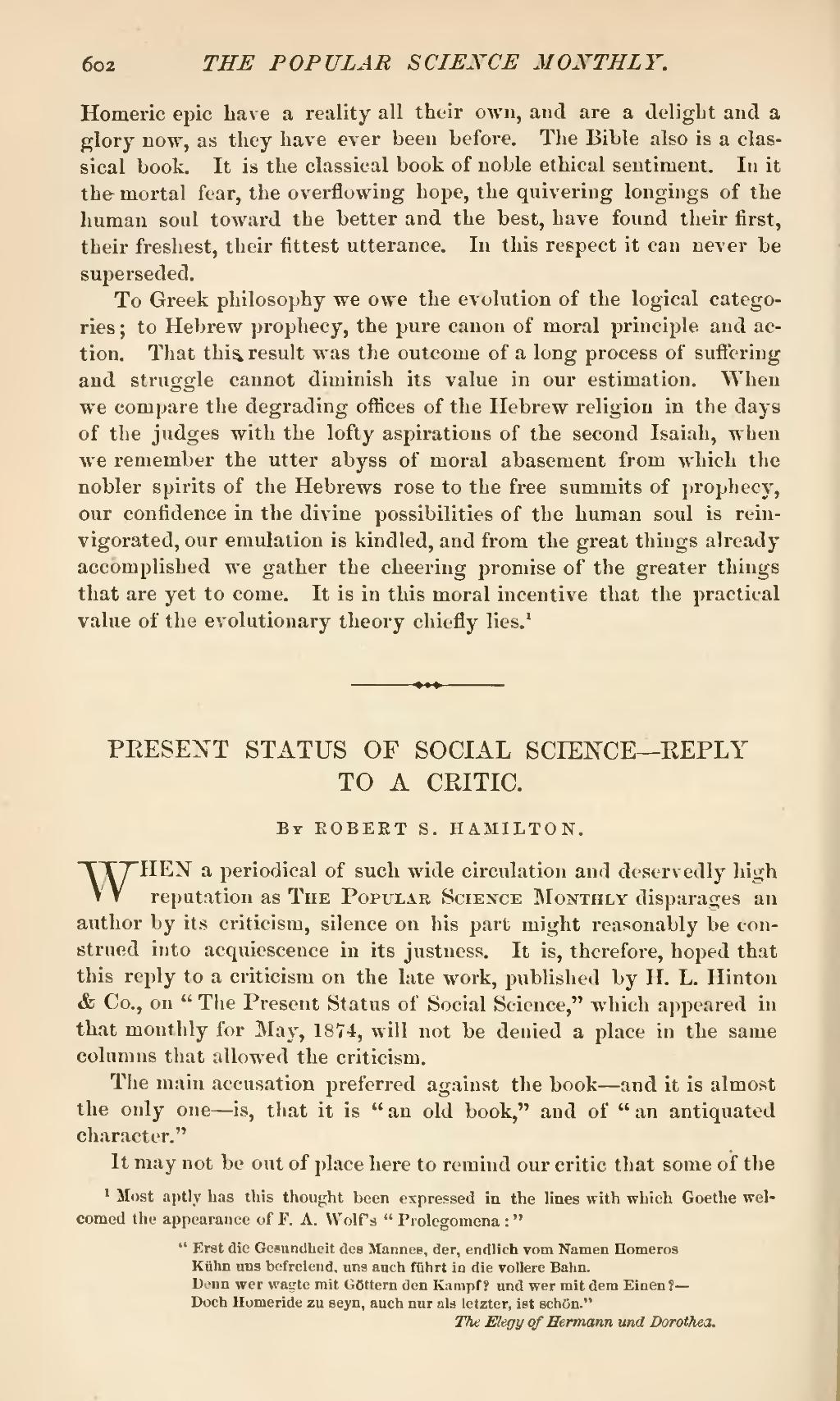Homeric epic have a reality all their own, and are a delight and a glory now, as they have ever been before. The Bible also is a classical book. It is the classical book of noble ethical sentiment. In it the-mortal fear, the overflowing hope, the quivering longings of the human soul toward the better and the best, have found their first, their freshest, their fittest utterance. In this respect it can never be superseded.
To Greek philosophy we owe the evolution of the logical categories; to Hebrew prophecy, the pure canon of moral principle and action. That this, result was the outcome of a long process of suffering and struggle cannot diminish its value in our estimation. When we compare the degrading offices of the Hebrew religion in the days of the judges with the lofty aspirations of the second Isaiah, when we remember the utter abyss of moral abasement from which the nobler spirits of the Hebrews rose to the free summits of prophecy, our confidence in the divine possibilities of the human soul is reinvigorated, our emulation is kindled, and from the great things already accomplished we gather the cheering promise of the greater things that are yet to come. It is in this moral incentive that the practical value of the evolutionary theory chiefly lies.[1]
| PRESENT STATUS OF SOCIAL SCIENCE—REPLY TO A CRITIC. |
By ROBERT S. HAMILTON.
WHEN a periodical of such wide circulation and deservedly high reputation as The Popular Science Monthly disparages an author by its criticism, silence on his part might reasonably be construed into acquiescence in its justness. It is, therefore, hoped that this reply to a criticism on the late work, published by H. L. Hinton & Co., on "The Present Status of Social Science," which appeared in that monthly for May, 1874, will not be denied a place in the same columns that allowed the criticism.
The main accusation preferred against the book—and it is almost the only one—is, that it is "an old book," and of "an antiquated character."
It may not be out of place here to remind our critic that some of the
- ↑ Most aptly has this thought been expressed in the lines with which Goethe welcomed the appearance of F. A. Wolfs "Prolegomena:"
"Erst die Gesundheit des Mamies, der, endlich vom Namen Homeros
Künn uns befrelend, una auch führt in die vollere Bahn.
Denn wer wagte mit Göttern den Kampf? und wer rait dem Einen?—
Doch Homeride zu seyn, auch nur als letzter, ist schön."The Elegy of Hermann und Dorothea.
